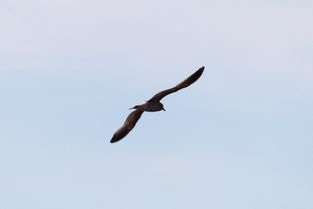Content:
Fishing in the river with a pole rod can be a truly rewarding experience, offering anglers the chance to catch a variety of fish in a dynamic and scenic environment. Whether you're a seasoned angler or a beginner looking to expand your skills, mastering the art of river fishing with a pole rod is key to a successful outing. In this article, we'll delve into the essential techniques that will help you improve your chances of landing that big catch in the river.
Understanding the River Environment
Before you start fishing, it's crucial to understand the river's environment. Rivers are constantly changing, with currents, depths, and substrates varying from one spot to another. Familiarize yourself with the river's flow, where the currents are strongest, and identify potential hotspots such as eddies, pools, and weed beds where fish are likely to congregate.
Choosing the Right Pole Rod
The first step in successful river fishing is selecting the right pole rod. Here are some factors to consider:
- Length: A longer rod (typically 7 to 10 feet) allows for better casting and control over long distances, which is often necessary in rivers.
- Action: Choose a rod with an action that matches the type of fishing you plan to do. Fast-action rods are ideal for casting heavy lures and dealing with strong currents, while slow-action rods are better for finesse techniques and light lures.
- Power: The power of the rod should be sufficient to handle the fish you're targeting. For instance, a medium-heavy power rod is suitable for most river species.
Choosing the Right Line and Lures
The type of line and lures you use will depend on the river's conditions and the species you're targeting. Here are some general guidelines:
- Line: Use a monofilament line that is strong and flexible. The thickness of the line should be suitable for the fish you're aiming to catch and the conditions of the river. For instance, a 6 to 12-pound test line is often a good starting point for most river fishing.
- Lures: Lures should mimic the natural prey of the fish you're targeting. Soft plastics, spinnerbaits, and flies are popular choices for river fishing. It's also important to match the color of your lure to the water conditions and the time of day.
Casting Techniques
Casting is a fundamental skill in river fishing. Here are some tips to improve your casting technique:
- Practice Your Casting: Spend time practicing your casting technique on land before you go fishing. This will help you develop a consistent and accurate cast.
- Use the Right Cast: Depending on the river's conditions, you may need to use different casting techniques. For example, a roll cast is useful for casting into tight spots or overhanging branches, while a sidearm cast is ideal for long casts.
- Adjust for Currents: If you're casting into a strong current, you may need to add extra line to your cast to compensate for the current's pull.
Fishing Techniques
Once you've cast your lure, it's time to fish it effectively:

- Present Your Lure: Allow your lure to sink to the desired depth and then start retrieving it. The speed and rhythm of your retrieve should mimic the natural movement of the prey fish.
- Read the Water: Pay attention to the river's currents and substrates. Fish often hold in specific areas, so be patient and observe the water to identify these spots.
- Be Patient: River fishing can be slow, so it's important to be patient. Wait for the fish to bite rather than forcing the action.
Safety and Etiquette
Always prioritize safety and etiquette when fishing in the river:
- Stay Safe: Be aware of your surroundings, especially when walking along the riverbank. Wear appropriate footwear and be cautious of slippery surfaces.
- Respect the Environment: Keep the river clean by disposing of trash properly and leaving nature as you found it.
- Be Considerate of Other Anglers: Be mindful of other anglers' fishing spots and try not to disturb them. It's also polite to share your knowledge and experience with fellow anglers.
In conclusion, mastering the art of river fishing with a pole rod requires a combination of knowledge, skill, and patience. By understanding the river's environment, choosing the right equipment, and honing your casting and fishing techniques, you'll be well on your way to a successful and enjoyable fishing experience. Remember to practice safety and etiquette, and you'll be a respected angler in the river community. Happy fishing!












